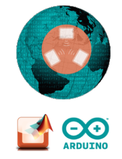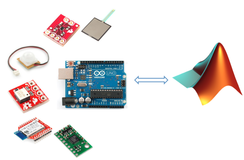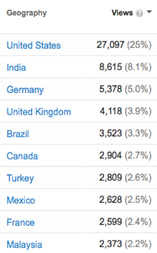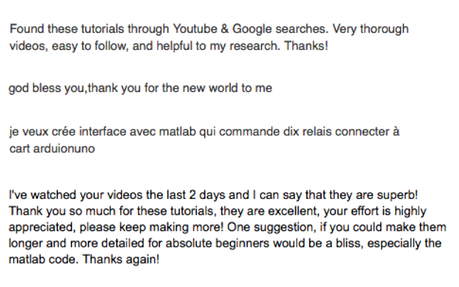
Immediately after the conversation, I came back to my research lab and emphatically brainstormed with my grad students, the possibility of our research group creating and posting videos online. The result was www.matlabarduino.org; a website dedicated to providing technically rigorous, free of cost, real-time sensor data analytics education. The website and the companion YouTube channel feature high-definition videos that demonstrate the use of MATLAB and Arduino platforms to interface with wired/wireless embedded systems for compelling sensor based real-time applications. The unifying theme for these videos is task of procuring, analyzing, and visualizing real-world data to generate real-time insights that facilitate data-driven decision making.


From a viewer engagement perspective, a key challenge faced by online education is the average view duration for a video being shorter than the total length of the video. We face the same challenge with our videos and continue to find innovative solutions to address it.
The viewer feedback has been generally positive with most users thanking us on the YouTube channel for posting the videos. A significant number of messages request code for the videos. While all the code is displayed in the videos, as a matter of policy, these videos are meant to encourage the audience to create and further curate their own code repository. In the same vein, we encourage the viewers to write their own code. Should the viewers run into technical issues, we provide support to the extent possible. To date, the YouTube channel has witnessed 1600+ subscribers, an indication of growing viewer loyalty.





 RSS Feed
RSS Feed